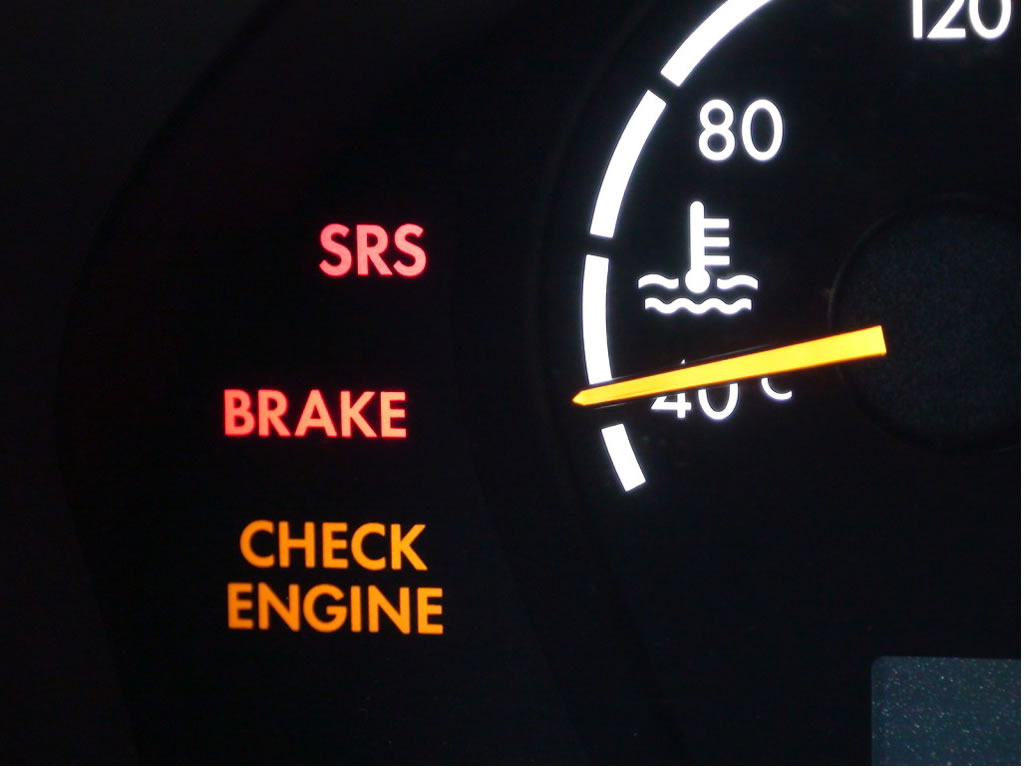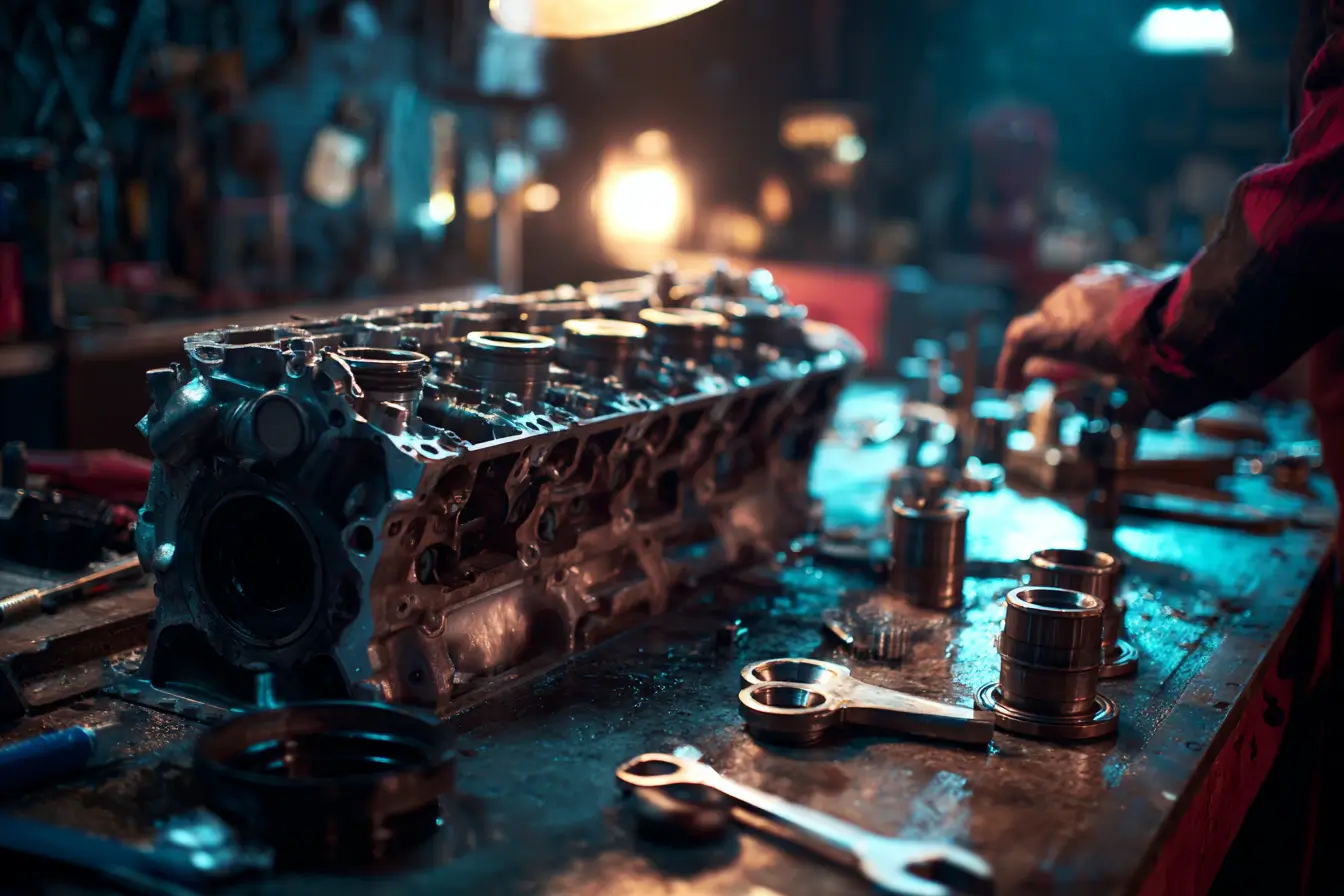
Renault Error Codes & Engine Problems: Complete Diagnostic Guide
Key Takeaways
| Error Code | Main Symptoms | Possible Causes |
|---|---|---|
| P0335 (DF033531) | Engine won’t start, stalling | Crankshaft position sensor failure |
| P0301-P0304 (DF059-DF062) | Engine misfires, poor performance | Ignition system failure, fuel quality issues |
| P0420 (DF394) | Check engine light, emissions failure | Catalytic converter efficiency below threshold |
| P0170 (DF398) | Poor fuel economy, rough idle | Fuel system malfunction, air-fuel mixture issues |
| P0011 (DF363) | Timing issues, rough idle | Camshaft phase regulator malfunction |
| DF297 | DPF warning light, reduced power | Diesel particulate filter blockage |
🔧 Equipment Needed: OBD-II scanner, oscilloscope, multimeter
💰 Diagnostic Cost: R450-R750 for professional diagnosis
⏱️ Repair Time: 1-6 hours depending on code complexity
Overview
Renault vehicles utilize sophisticated On-Board Diagnostics (OBD-II) systems to monitor engine performance and detect potential issues through Diagnostic Trouble Codes (DTCs). Understanding Renault-specific error codes, including the DF series codes, is crucial for proper vehicle maintenance across their K4M, F4R, M9R, and dCi engine ranges.
Renault Engine Diagnostic Specifications
| Specification | Details |
|---|---|
| OBD-II Compliance | Standard since 1996 model year |
| Diagnostic Protocols | ISO 9141, KWP2000, CAN Bus |
| Renault-Specific Codes | DF xxx, P1xxx manufacturer codes |
| Service Connector | 16-pin OBD-II port under dashboard |
| Diagnostic Frequency | Every 3-6 months or when warning lights appear |
| Common Engine Types | K4M, F4R, M9R, dCi engines |
| Turbo System Codes | DF569, P0299, boost control |
| Applications | Clio, Megane, Scenic, Duster, Koleos |
Equipment Needed for Renault Diagnostics
- OBD-II Scanner: Renault-compatible diagnostic tool (R800-R2,500)
- Oscilloscope: For sensor signal analysis (R1,500-R4,000)
- Multimeter: For electrical system testing (R250-R500)
- Basic Tools: Socket set, screwdrivers (R300-R600)
- Renault Service Manual: Model-specific procedures
1. P0335 - Crankshaft Position Sensor
Causes
- Faulty crankshaft position sensor
- Damaged sensor wiring or connectors
- ECU timing signal interpretation issues
- Crankshaft reluctor wheel damage
- Metal debris affecting sensor readings
Symptoms
- Engine cranks but won’t start
- Intermittent stalling during operation
- No spark or fuel injection
- Rough idle when sensor signal is weak
- Tachometer reading erratic or zero
Solution
- Replace crankshaft position sensor
- Clean sensor and reluctor wheel area
- Check and repair wiring connections
- Verify timing belt/chain alignment
- Update ECU software if applicable
DIY Difficulty / Hours
- Sensor replacement: Moderate / 1-2 hours
- Wiring repair: Moderate / 1-3 hours
- Professional diagnosis: R450-R750
- Sensor cost: R350-R800
Diagnostic Tip
P0335 often appears with engine stalling. Use an oscilloscope to verify sensor signal pattern - the crankshaft position sensor should show clean square wave signals during cranking.
2. P0301-P0304 - Engine Misfires
Causes
- Worn or fouled spark plugs
- Faulty ignition coils or coil packs
- Poor fuel quality or contaminated fuel
- Fuel injector malfunction
- Low engine compression
Symptoms
- Engine runs rough or skips
- Loss of power during acceleration
- Increased fuel consumption
- Possible backfiring through exhaust
- Check engine light flashing (severe misfire)
Solution
- Replace spark plugs and check gaps
- Test and replace faulty ignition coils
- Clean or replace fuel injectors
- Check fuel quality and filter
- Perform compression test if needed
DIY Difficulty / Hours
- Spark plug replacement: Easy / 1-2 hours
- Ignition coil replacement: Moderate / 1-3 hours
- Fuel injector service: Difficult / 3-6 hours
- Professional diagnosis: R450-R750
3. P0420 - Catalytic Converter Efficiency
Causes
- Catalytic converter degradation or damage
- Oxygen sensor failure (upstream or downstream)
- Engine running too rich or lean
- Exhaust leaks affecting sensor readings
- Use of non-OEM catalyst
Symptoms
- Check engine light illumination
- Failed emissions test
- Reduced fuel efficiency
- Possible sulfur smell from exhaust
- Poor acceleration performance
Solution
- Replace catalytic converter
- Replace faulty oxygen sensors
- Address air-fuel mixture issues
- Repair any exhaust leaks
- Use quality fuel and avoid short trips
DIY Difficulty / Hours
- Oxygen sensor replacement: Moderate / 1-2 hours
- Catalytic converter replacement: Difficult / 3-5 hours
- Cost: R3,500-R12,000 for catalyst replacement
- Professional installation recommended
4. P0170 - Fuel System Malfunction
Causes
- Mass airflow sensor malfunction
- Oxygen sensor failure
- Fuel pressure regulator issues
- Vacuum leaks in intake system
- Clogged fuel filter or injectors
Symptoms
- Poor fuel economy
- Engine stalling at idle
- Hesitation during acceleration
- Rough idle or surging
- Difficulty starting engine
Solution
- Clean or replace mass airflow sensor
- Replace oxygen sensor if faulty
- Check and repair vacuum leaks
- Replace fuel filter
- Professional fuel system diagnosis
DIY Difficulty / Hours
- MAF sensor cleaning: Easy / 0.5-1 hour
- Fuel filter replacement: Moderate / 1-2 hours
- Vacuum leak diagnosis: Moderate / 1-3 hours
- Professional fuel system service: R800-R2,500
5. P0011 - Camshaft Timing
Causes
- Camshaft phase regulator malfunction
- Variable valve timing solenoid failure
- Engine oil quality or level issues
- Timing chain/belt wear or damage
- ECU timing control problems
Symptoms
- Rough idle or engine vibration
- Poor performance during acceleration
- Increased fuel consumption
- Possible engine knocking sounds
- Reduced power output
Solution
- Replace variable valve timing solenoid
- Check and change engine oil
- Inspect timing chain/belt condition
- Clean oil passages and screens
- Professional timing system diagnosis
DIY Difficulty / Hours
- Oil change: Easy / 0.5-1 hour
- VVT solenoid replacement: Moderate / 1-2 hours
- Timing system inspection: Difficult / 3-6 hours
- Professional service: R1,200-R4,500
Timing System Warning
Never ignore P0011 codes. Improper camshaft timing can cause valve-to-piston contact in interference engines, leading to catastrophic engine damage.
6. DF297 - DPF Blockage
Causes
- Clogged diesel particulate filter
- Incomplete DPF regeneration cycles
- Short trip driving patterns
- Faulty DPF pressure sensors
- Poor quality diesel fuel
Symptoms
- DPF warning light on dashboard
- Engine power reduced (limp mode)
- Increased fuel consumption
- Black smoke from exhaust
- Strong exhaust smell
Solution
- Perform forced DPF regeneration
- Replace DPF pressure sensors
- Professional DPF cleaning service
- DPF replacement if severely damaged
- Adopt highway driving patterns
DIY Difficulty / Hours
- DPF regeneration procedure: Moderate / 1 hour
- Pressure sensor replacement: Moderate / 1-2 hours
- Professional DPF cleaning: R2,500-R8,000
- DPF replacement: R8,000-R25,000
How To Read Renault Fault Codes
To diagnose Renault error codes effectively:
- Connect OBD-II Scanner: Plug scanner into diagnostic port under dashboard
- Turn On Ignition: Key to ON position (don’t start engine)
- Read Codes: Follow scanner instructions to retrieve stored codes
- Note DF Codes: Record both P-codes and Renault-specific DF codes
- Clear Codes: Only after repairs are completed
- Test Drive: Verify codes don’t return after clearing
Diagnostic Video Guide
Preventative Maintenance Tips
Regular Service Schedule
| Service Type | Interval | Components |
|---|---|---|
| Engine Oil Change | Every 10,000-15,000 km | Oil, filter, seals inspection |
| Air Filter | Every 20,000 km | Engine air filter, cabin filter |
| Spark Plugs | Every 40,000-80,000 km | Inspect, gap, replace as needed |
| Fuel System | Every 60,000 km | Injector cleaning, fuel filter |
| DPF Service | Every 80,000 km | Professional cleaning or replacement |
Critical Maintenance Items
- Use Quality Fuel: Premium diesel/petrol reduces carbon buildup
- Regular Highway Driving: Essential for DPF regeneration in diesel models
- Monitor Engine Oil: Clean oil prevents timing system issues
- Check Air Filter: Clean airflow prevents mixture problems
- Professional Diagnostics: Annual OBD scan to catch issues early
FAQ
How often should I scan my Renault for error codes?
Perform diagnostic scans every 6 months or immediately when warning lights appear. Regular scanning helps identify issues before they become expensive repairs.
What’s the difference between DF codes and P codes?
P-codes are universal OBD-II standards used by all manufacturers. DF codes are Renault-specific manufacturer codes that provide more detailed diagnostics for Renault systems.
Can I drive with a P0335 crankshaft sensor code?
P0335 can cause sudden stalling and should be repaired immediately. Continued driving risks being stranded and potential engine damage from improper timing.
Why does my DPF keep getting blocked?
DPF blockage typically results from short trip driving patterns. Take your vehicle on 20-30 minute highway drives weekly to allow proper DPF regeneration.
Are Renault diagnostic tools expensive?
Basic OBD-II scanners cost R800-R2,500. Professional Renault-specific tools are more expensive but provide deeper diagnostics for DF codes and complex systems.
Should I clear codes immediately after scanning?
Only clear codes after completing repairs. Clearing codes without fixing underlying problems will cause them to return and may worsen conditions.
Conclusion
Understanding Renault error codes, including both universal P-codes and manufacturer-specific DF codes, is essential for maintaining your vehicle’s performance and reliability. Regular diagnostic scans, proper maintenance, and prompt attention to warning signs can prevent minor issues from becoming major repairs.
When professional diagnosis or engine replacement becomes necessary, Engine Finder provides access to quality Renault engines for sale and professional automotive services across South Africa.
References and Further Reading
Technical Resources
Diagnostic Tools
Community Resources
Related Articles
Explore more insights on similar topics

How Long Do Engines Last on Average? Complete Longevity Guide
Understand real-world engine lifespan ranges, warning signs, lifecycle stages, costs, and maintenance best practices for South African drivers.

How Does an Engine Overhaul Work? Complete Guide to Engine Rebuilds
Learn everything about engine overhauls: types, warning signs, process, costs, and when to rebuild vs replace your engine in South Africa.
.webp)
Timing Chain vs Timing Belt: Complete Guide to Cambelt Replacement & Lifespan
Learn everything about timing chains and timing belts (cambelts): differences, lifespans, replacement costs, and which is better for your engine in South Africa.
Important Disclaimer
This content is for informational purposes only and is based on research from automotive industry sources. Engine Finder is not a certified automotive repair facility. Always consult with qualified automotive professionals before performing any repairs or maintenance. Improper repairs can result in personal injury, property damage, or vehicle malfunction. We assume no responsibility for actions taken based on this information.
